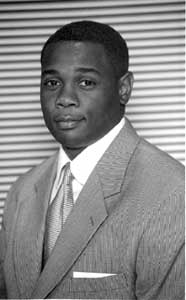-
- Schaefer wants public list of people with AIDS
- Same-sex marriage playing quiet role in elections that could decide its fate
- Judge rules conservative groups can join Calif. state defense
- Cincinnati voters deciding fate of ban on gay rights laws
- Second convict in Texas gay slaying executed
- Coburn says lesbian remark was taken out of context
- National News Briefs
- World News Briefs
national
Cincinnati voters deciding fate of ban on gay rights laws
Some worried marriage amendment, also on ballot, will cloud voters’ decision on ban
Published Thursday, 21-Oct-2004 in issue 878
CINCINNATI (AP) – Voters in November will decide for the first time whether to keep the city’s 11-year-old ban on gay rights laws, the only one in the nation.
Supporters of repeal say it’s time that tolerance for diversity has increased. They also argue that the ban on enacting or enforcing laws based on sexual orientation keeps out convention business and new companies.
“The world has changed a great deal in the last 11 years with more gay people willing to be open about their sexual orientation, more of the public willing to embrace diversity and more businesses recognizing that discrimination is wrong,” said Gary Wright, chair of Citizens to Restore Fairness.
Opponents say there is no evidence either of harm to the economy or of changing attitudes since 62 percent of voters approved the ban in 1993.
“Nothing has changed, except that the business community has decided that the amendment needs to be repealed,” said Phil Burress, president of Equal Rights, No Special Rights and president of the conservative Citizens for Community Values. “The board of the Chamber [of Commerce] may support repeal, but that doesn’t mean all the chamber members agree.”
There has been little polling on the question, but the city has historically been seen as conservative, especially in light of several court cases in the 1990s. An art gallery was prosecuted for displaying homoerotic photographs by the late Robert Mapplethorpe, and Larry Flynt was prosecuted for selling his Hustler magazine and what authorities said were sexually explicit videos.
Cincinnati inserted the ban in its charter, requiring a vote of the people to overturn it.
Gene Beaupre, a political science professor at Xavier University, said backers of repeal will have to rely on voters going down the ballot Nov. 2 past the main event of the presidential race.
Statewide, the ballot also will include a proposal to amend the Ohio Constitution to ban same-sex marriage. That worries Sandy Allen, who married her longtime partner in San Francisco earlier this year in one of over 4,000 same-sex marriages later invalidated by the California Supreme Court.
Though optimistic the ban will be dropped, Allen is concerned that the statewide question may cloud the local issue for some voters who might support repeal but aren’t ready to accept same-sex marriage.
The Cincinnati charter amendment was drafted after the city council forbid discrimination against gays and lesbians – among other groups – in housing, workplaces, hotels and restaurants.
Opponents say it took years after the subsequent court battle to rebuild the energy to organize another challenge.
Allen, 48, says tolerance has increased.
“I can’t put my finger on why, but I actually think this may be the most critical time since 1993 to try and get rid of this amendment,” she said. “If we let it go any longer without trying, then it could get so entrenched in the system that no one would be willing to change it.”
Backers say the council’s action granted special rights to gays and lesbians, who already are protected by civil rights laws.
“I haven’t seen any data that shows that gays and lesbians have been discriminated against in Cincinnati,” said City Councilmember Sam Malone, chair of the Equal Rights organization. “When I think of people being discriminated against, I think of people being harmed, and I don’t see that here.”
The Greater Cincinnati Convention and Visitors Bureau, which cannot take stands on political issues, says at least eight organizations canceled plans to bring conventions or other meetings to Cincinnati because of the ban and only one rebooked.
“That means a minimum of about $24 million a year that the city could be missing out on annually, and there are many groups we will never know about because they won’t even consider Cincinnati as long as the amendment remains,” said bureau spokesperson Julie Calvert.
The Association of Flight Attendants-CWA moved its meeting in 1999 and says it won’t return as long as the ban is in place.
“We were willing to pay the hotel penalty after we found out what the city had done,” said association spokesperson David Kameras.
Repeal opponent Phil Heimlich, a Hamilton County commissioner, disputes that studies focusing on loss of convention business show impact from the ban.
“Also, the amendment passed overwhelmingly in 1993 in a city that is much more liberal than the surrounding county,” he said.
Repeal supporters – which include business, government and religious officials – say they worry about the city’s image.
The chief executive of Messer Construction Co., which does about $450 million of construction business annually in the region, said he knows from his own business experience that competition for talent has increased.
“As a builder of complex institutional and commercial buildings, our customers usually have a diverse work force and want to attract the best talent,” Pete Strange said. “That means locating in areas that are perceived to be the best places to live, work and raise families.”
|
|
Copyright © 2003-2025 Uptown Publications


